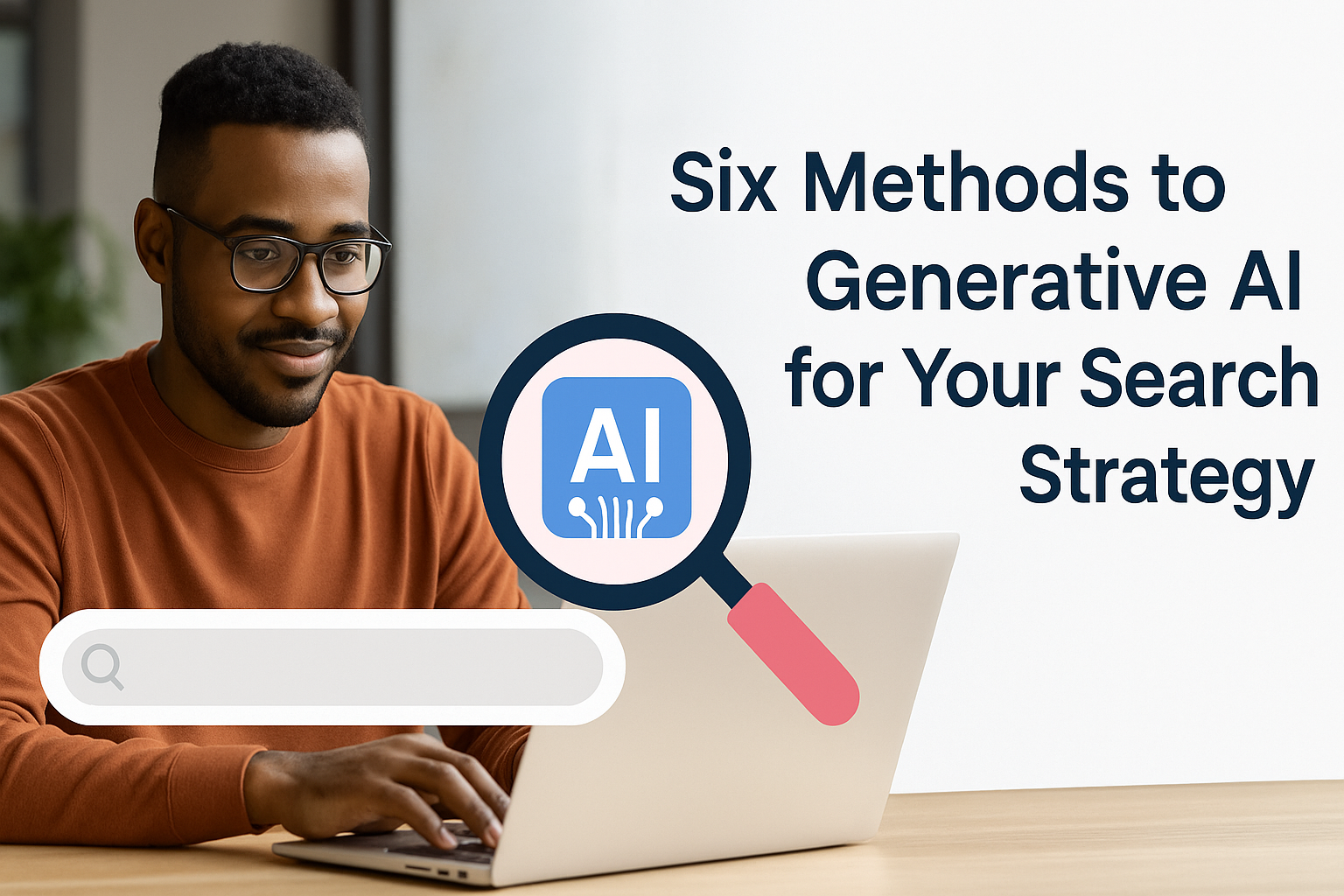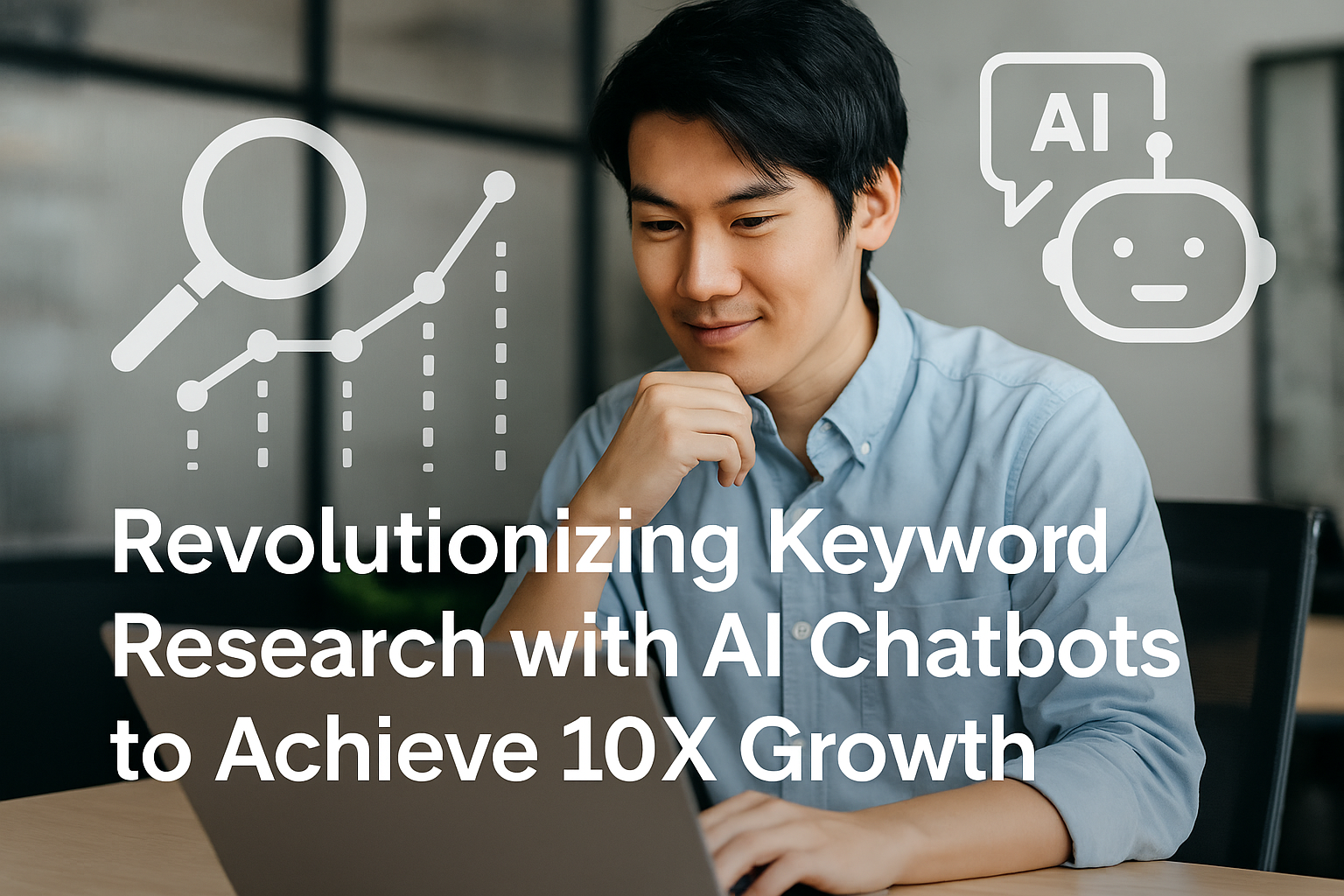The death of the 10 blue links: The revolutionary role of generative AI in search.
With the rise of generative artificial intelligence (AI), search marketing has been empowered with advanced capabilities that go beyond traditional approaches. Generative AI is reshaping how we find information online, transforming search marketing and revolutionizing how marketers optimize online presence.
What does generative search mean anyway?
Google splits its AI products into two categories – Predictive and Generative. Before we dive in, let’s first understand what generative AI is and distinguish it from the more traditional form of predictive AI.
Predictive AI is Google’s bread and butter and has been transformative over the last five years. Google Ads leverages machine learning and predictive modeling to suggest actions or decisions based on user preferences, powering what you should bid in an auction and what search terms your keywords should match to, as well as providing real-time insights to help enhance the search experience.
Generative AI, on the other hand, takes data and creates new and original content, such as text, images (the banner used in this article, for example), and even videos. Unlike traditional AI systems that rely on pre-programmed rules, generative AI utilizes neural networks to learn patterns and generate outputs based on the data it has been trained on.
With the rise of core creative AIs like ChatGPT and Midjourney coming into popular culture, it begs the question, “Does this spell the end of the publisher-backed internet and the ten blue SERP links?!”
In Adthena’s recent webinar The future of search: How Generative AI will revolutionize the search strategy, Guy Gobert-Jones, search and solutions consultant of Omnicom MediaGroup (OMG), answers this by unpacking the short and long-term impacts of generative AI.
Gobert-Jones predicts, “The reality will be much more nuanced, focusing on where the AI creates truly addictive user experiences. We will end up with around 10% of total searches powered by this technology.”
The role of AI in search
AI is transforming the search landscape and revolutionizing how we find information online. Its ability to generate human-like responses, understand context, and personalize search results has elevated the search experience to new heights.
From a more tactical view, here are six ways generative AI can transform your search strategy.
- Automated asset generation:
Automated asset generation is a big topic at the moment. These models power ad formats in campaign types like Performance Max to allow core assets to be seamlessly manipulated into different versions for different devices and ad slot sizes.
By analyzing existing ad campaigns, user behavior and market trends, generative AI algorithms can generate original and persuasive ad copy. This AI-generated ad copy saves time and effort and will help marketers experiment with different messaging variations and identify the most effective versions – resulting in increased click-through rates (CTRs) and improved ad performance.
Conversely, Gobert-Jones questions, “Current automated asset creation does not leave room for consistent adherence to brand guidelines, but as the technology develops, I expect we will get greater ability to add the guardrails.”
This question comes up a lot. Adthena’s Campaign Optimization solution leverages AI to propose various ad copy variations and enhancements, aiming to optimize the impact of search ads and achieve maximum effectiveness.
- Real-time bid optimization:
The success of a paid search campaign is very much dependent on effective bid management. Leveraging real-time AI-powered data, such as keyword performance, competitors’ bidding strategies and user behavior, will help marketers optimize bidding decisions dynamically. Search marketers can now automate bid adjustments, ensuring optimal ad placement and cost efficiency. This real-time bid optimization, in turn, leads to better ad positioning, increased visibility and improved ROI.
Marketers can now use automated Brand Activator technology to help with just this. When a brand term ranks number one on the SERP for both paid and organic, with no other bidders, there is no need to pay for those clicks. Brand Activator automatically detects those terms and adds them to the negative keyword list. Customers pocket the savings or reinvest in generic terms to drive new revenue.
- Audience targeting and segmentation:
By analyzing user data and behavior patterns, marketers can identify relevant audience segments for paid search campaigns. Marketers can use Whole Market View technology to understand user demographics, preferences and online behavior. By leveraging AI to refine targeting strategies, marketers can deliver tailored ads to specific user groups to maximize ad relevance and increase the chance of conversions.
- Ad creative testing:
Without question, A/B testing is a vital aspect of paid search strategies. Generative AI can automate the ad creative testing process by generating multiple versions of ads and analyzing their performance. This provides valuable insights into which ad elements, such as headlines, images or calls to action, drive the best results.
- Predictive performance analytics:
Generative AI can provide predictive analytics to forecast paid search campaign performance. By analyzing historical data, market trends and user behavior, marketers can predict the potential outcomes of different bidding strategies, budget allocations, and targeting approaches, helping them to make data-informed decisions and optimize their campaigns proactively.
- Ad personalization and optimization:
Last but by no means least, generative AI will help deliver personalized ads to individual users based on their preferences and behavior. Generative AI can generate customized ad variations that resonate with specific individuals by analyzing user data and historical interactions. This personalization enhances the user experience, increases relevancy, and drives higher engagement and conversion rates.
To put this into practice, a Campaign Optimization solution is available that helps customers analyze and evaluate ad copy performance by considering factors like click-through rates, conversion rates, and engagement metrics. The technology leverages AI to suggest ad copy variations and improvements to maximize the effectiveness of search ads.
What does this mean at the back end?
So, what does this all mean for marketers working within advertising platforms, such as Google Ads?
Gobert-Jones suggests this is where technology will be more transformative. “Think AI assistants in advertising platforms which are there to help you identify trends, spot opportunities and test new ad variations.”
Omnicom recently announced a series of generative AI partnerships with Google, Amazon, Microsoft and Adobe to access and apply their models within an Omnicom tech environment.
Generative AI – It’s going nowhere but upwards
Generative AI, with its ability to generate human-like responses, understand context and personalize search results, has elevated the search experience to new heights. As generative AI continues to evolve, it will undoubtedly play a vital role in shaping the future of search, offering more accurate, personalized and relevant results to users worldwide.
So, what next?
The curious world of artificial intelligence is a minefield. If you’re a little in the dark about how AI can fit into your search strategy, unsure who is bidding on your brand, where they are doing it and what adverts they are using, check out Adthena’s guide Reveal your wasted budget with AI-powered search intelligence to reveal AI-driven strategies for unparalleled search success and revenue optimization.


